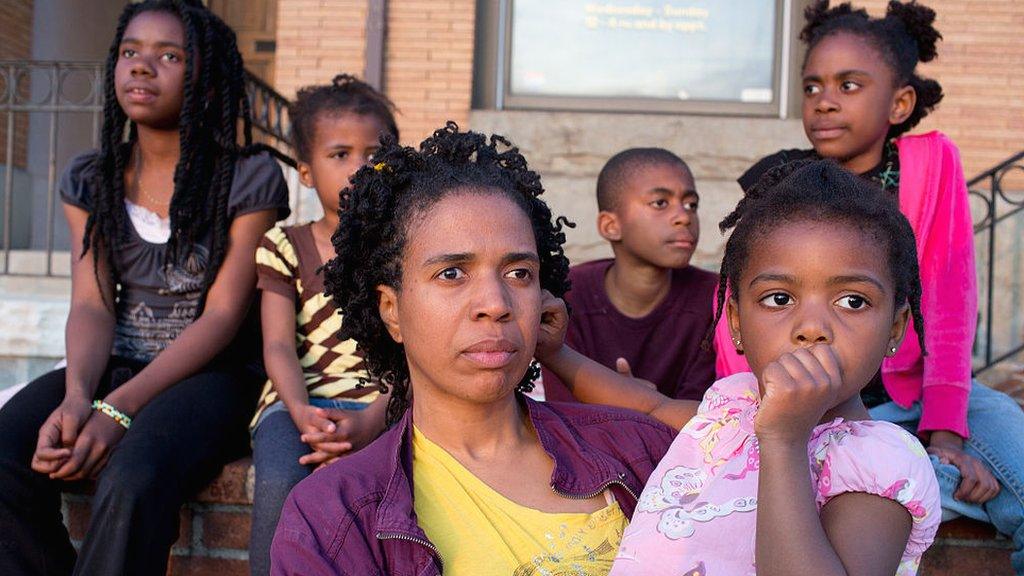Black America Speaks: What black radio makes of this moment
- Published
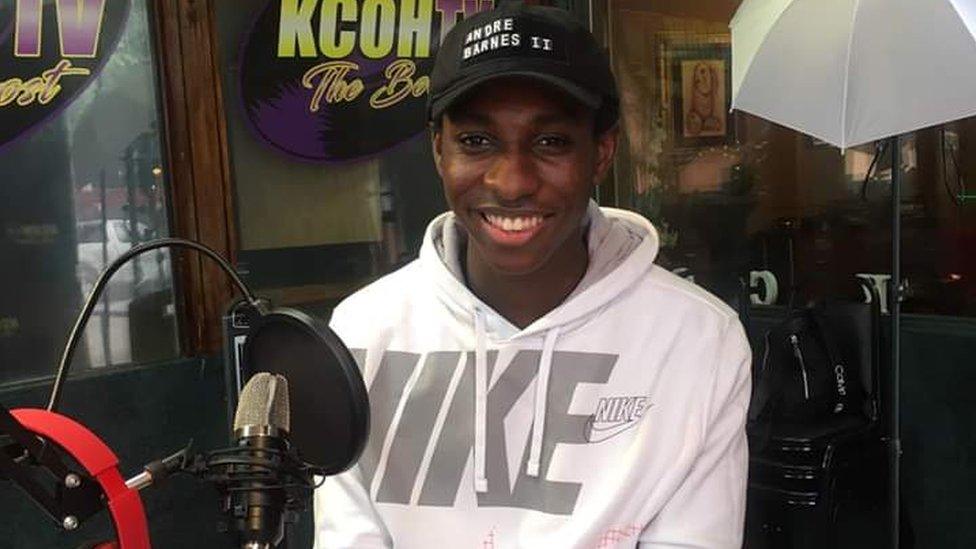
Dre Barnes says 'let them know you have passion'
The killing of George Floyd in Minneapolis has reignited the conversation about racial equality around the world.
BBC World Service has been listening in to some of what is being said on black-owned radio stations across the United States.
As part of a series called Black America Speaks, listeners have been on a virtual road trip across the US from Philadelphia to Los Angeles via Chicago and Houston.
Across the US, 13% of the population identifies as being black, yet only 1.6% of commercial radio stations in the country are black-owned, according to the National Association of Black Owned Broadcasters.
Radio stations WURD, KCOH, KJLH and WVON worked with the BBC OS radio team to share the black experience of life in the US during this time of change.
Houston, Texas
One block away from the Third Ward district where George Floyd grew up is Houston's KCOH radio.
The historic KCOH studio has a "looking glass window" that allows people on the street to watch the activity inside while broadcasters and guests are on air.
Fourteen-year-old Dre Barnes went into the studio with his mum Latarsha and told host Jerri P Beasley that the video of Mr Floyd's killing felt like it was "happening to me in real time" and that he felt "hunted" by the police because of his skin colour.
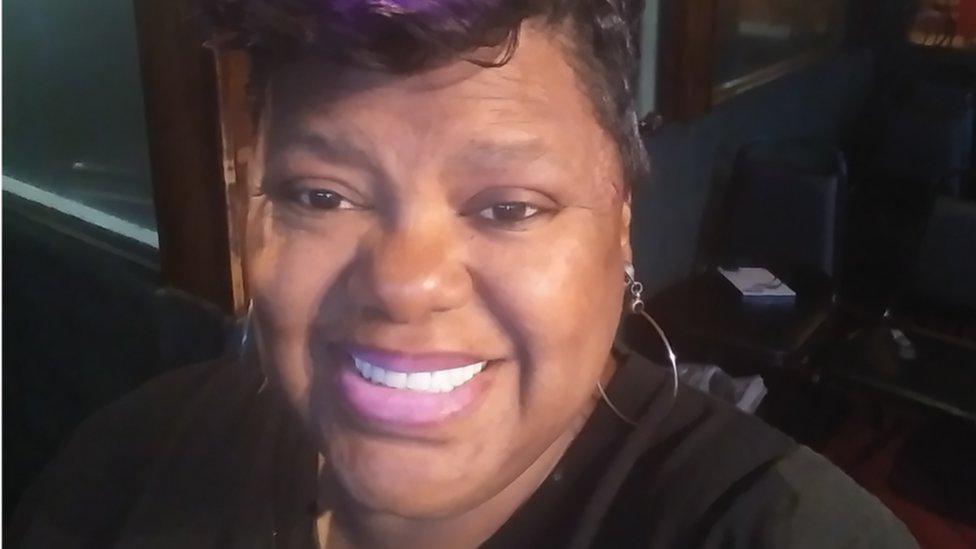
Jerri P Beasley is a host at KCOH radio
Every day, Dre said, "I make myself educated and present a safe demeanour."
Even at the age of 14 he says he thinks about how to behave if he has an encounter with the police.
"Try to make it seem like I'm not aggressive - like a statistic. Make sure they feel safe and I feel safe at the exact same time, when that moment happens. I want to comply with whatever they are saying, make sure I'm not being difficult and just try to make their job and my job easier so there can be no aggression. And if anything does happen, God forbid, you can't even say 'my hand twitched in the wrong direction.'''
Latarsha is mother to four black sons.
"I pray first and prepare my son second. It takes your breath away knowing that education and respect is not enough, that the colour of their skin overrides everything in certain situations. As an African-American parent you cannot 100% prepare them for everything."
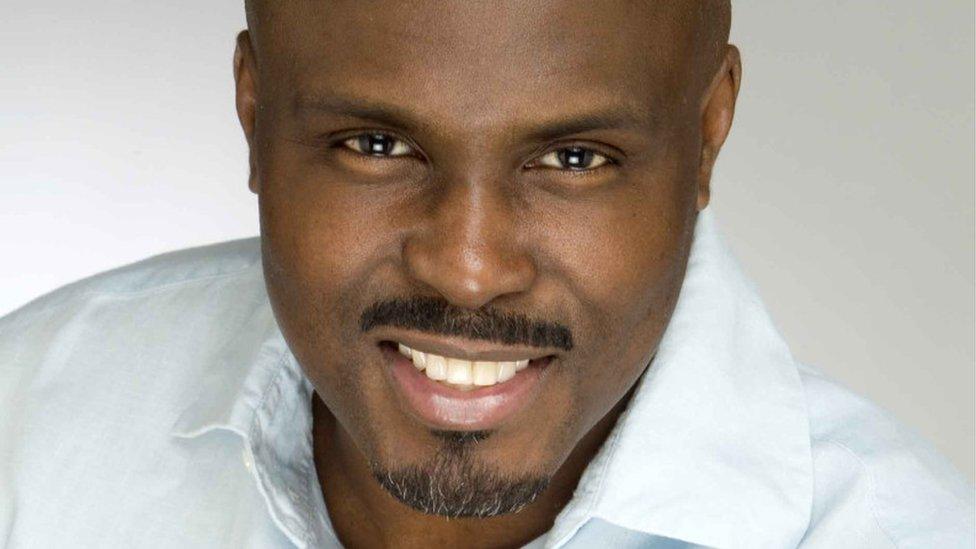
'The powder keg was already there,' says Solomon Jones
When asked for a solution to racial inequality, Dre said: "Worldwide understanding is what we all need. Make sure your voice is heard wherever you are and what's happening. We must not be quiet or scared. Let them know you have a passion and a fiery spirit - and you won't let anything get in the way, whether it's a baton or pepper spray. We've got to make sure it doesn't go away."
Philadelphia, Pennsylvania
WURD in Philadelphia is the only black-owned and operated talk radio station in Pennsylvania.
Solomon Jones is the presenter of WURD's breakfast show Wake up with WURD.
"George Floyd was the match, but the powder keg was already there. Our people are talking about the conditions that existed prior to this that made this possible to happen."
Reverend Barclay called in to the live programme.
"This is our moment and I believe we have to take advantage because it might be the last train home. We need to be authentically black in all the places we occupy, the boardroom or the pulpit. We have to be careful we don't display just our anger in this moment but clearly identify, in our minds at least, what success is going to look like."
'Speak and be heard'
WURD's CEO Sara Lomax Reese chaired the conversation and asked her team of presenters about where they saw the line between their need for journalistic objectivity and activism.
Solomon Jones said: "I was black before I was anything else, a journalist, a radio host, before they told me I had to be even-handed! My family worked hard in order to get through the discrimination they faced when they moved from South Carolina and put me in a position where I could actually communicate our history, our needs and wants. For me to be anything other than an activist for my people would be a waste of everything they have gone through. I am a black man first and everything else flows from that."
Chicago, Illinois
Chicago radio station WVON was originally known as The Voice of the Negro in the third largest city in the US.
Host Perri Small said "We have our own George Floyd, we have Laquan Macdonald" - a teenager who was murdered by a police officer in 2014.
Alongside a discussion about a series of shootings in the city that weekend, the WVON breakfast show discussed how NBA stars are soon to have social justice statements printed on their jerseys.
Breakfast show guest, attorney Ernest B Fenton said:
"It's ridiculous, because it's not enough. Symbolism doesn't work for black people. The real deal is, we should shut it down. We need to control our labour in the NBA, the NFL, entertainment, black lawyers like me - we should shut the court system down."
Los Angeles, California
In 1992, Los Angeles saw widespread rioting after the acquittal of four police officers who were captured on video beating Rodney King after stopping his car.
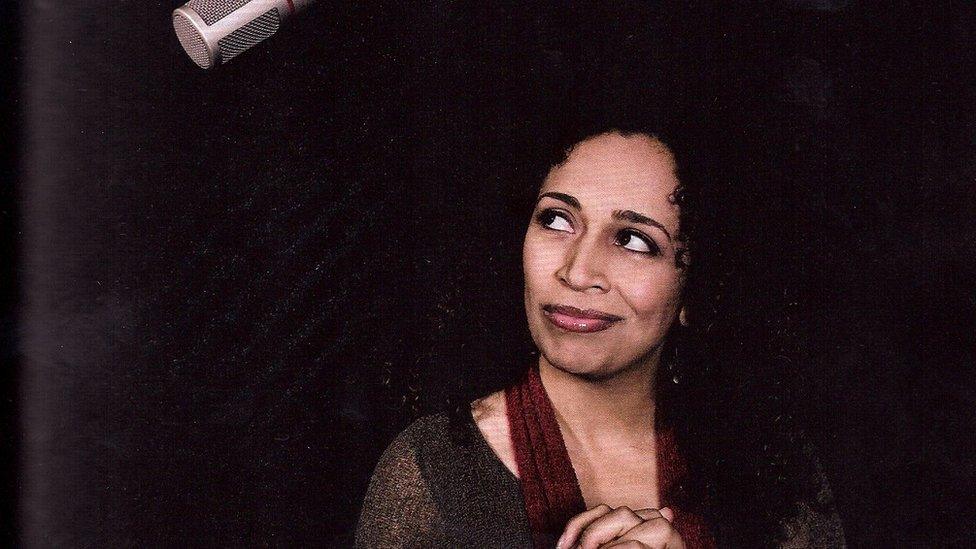
Dominique DiPrima says LA has a history of activism
Claims of police brutality against black people are now often being supported by mobile phone video footage.
KJLH radio is owned by music legend Stevie Wonder.
Host Dominique DiPrima said: "People think of Tinsel Town, beaches and Hollywood and 'Straight Outta Compton' but I don't think people really give Los Angeles the credit it deserves for the long-term activism we have as a core tradition."
Eddie from LA called into Dominique's Front Page morning show.
He wanted to look ahead to this year's elections and how Democratic Party candidate Joe Biden should approach the debate to resolving conflict on race relations: "Biden needs to be clear about the idea of reparations; we need a clear vision of what we want. What does it mean? Free education, medicine, some housing thing?"
Many schools and universities across the US have campus police forces.
After weeks of protests, the Los Angeles Board of Education decided to reduce its police force on school campuses by 35%.
Amara Abdullah said: "I've had multiple bad experiences with school police and it's another sign that when we fight we win. People need to get involved when they can, there's social media - there's not just one way to organise."
- Published13 June 2020
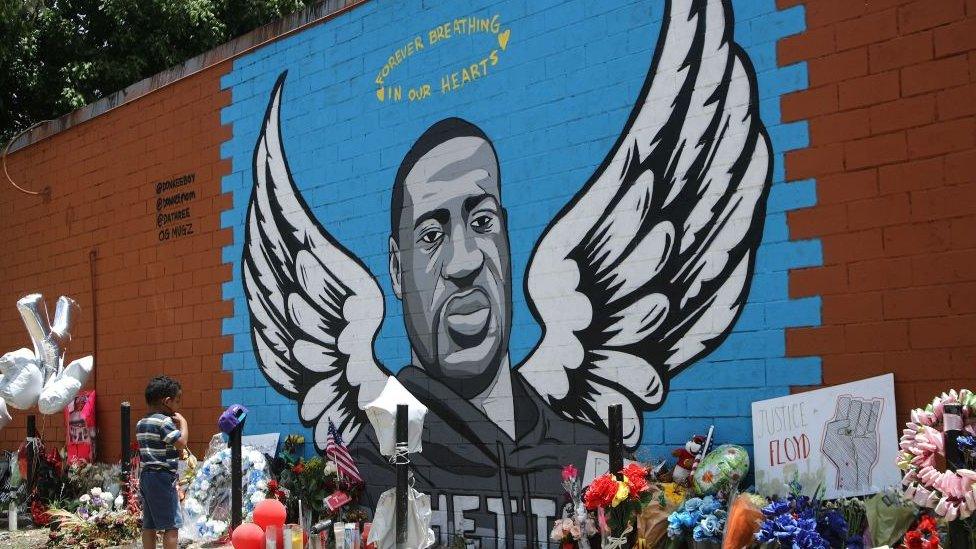
- Published26 June 2020
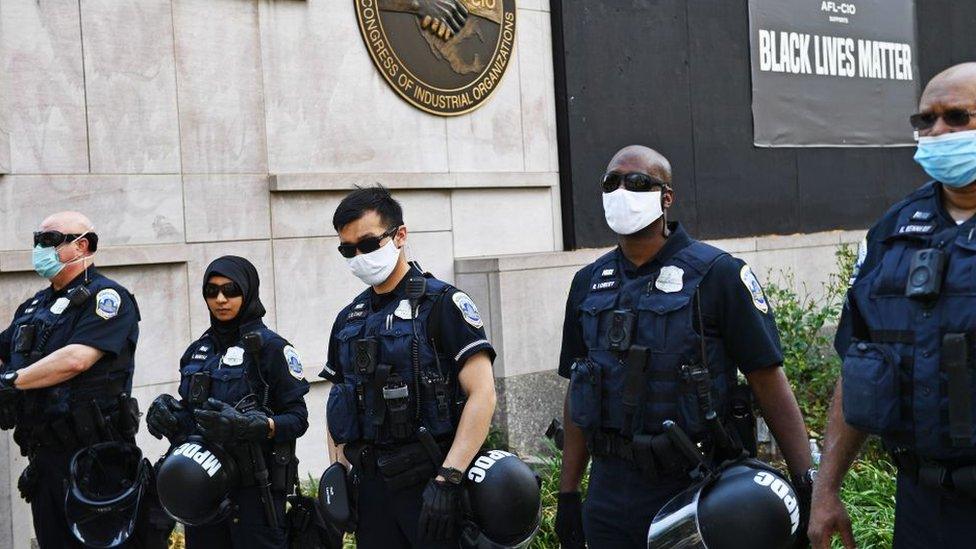
- Published24 May 2021
